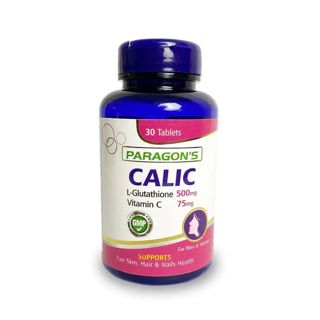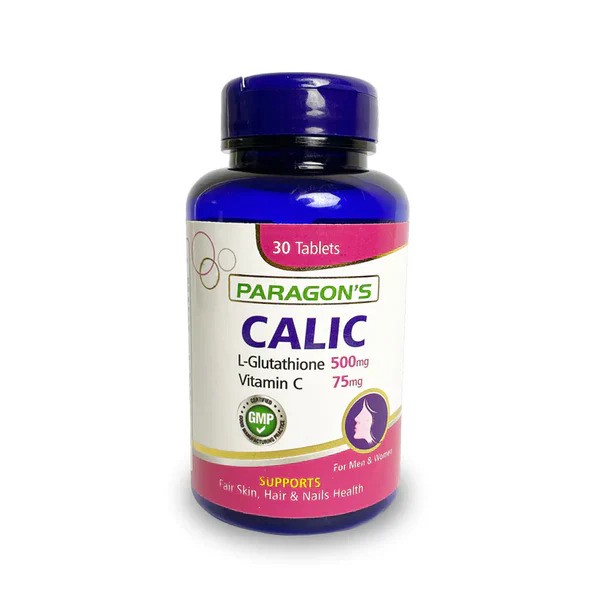
L-glutathione, often known simply as glutathione, is a powerful antioxidant that plays a crucial role in maintaining overall health. This remarkable compound is naturally produced by the body and is involved in numerous vital processes. From detoxification and immune support to anti-aging and cognitive health, L-glutathione offers a range of benefits that can significantly boost your well-being. In this blog, we will explore the many L-glutathione benefits and how you can naturally enhance your levels of this essential antioxidant.
What is L-Glutathione?
L-glutathione is a tripeptide molecule composed of three amino acids: cysteine, glutamine, and glycine. It is found in every cell of the body, with especially high concentrations in the liver. Glutathione is unique because it can be synthesized within the cells, allowing it to perform its functions precisely where it is needed.
The Importance of Antioxidants
To fully understand the benefits of L-glutathione, it's essential to grasp the role of antioxidants. Antioxidants are molecules that neutralize free radicals, which are unstable atoms that can damage cells, proteins, and DNA. This damage, known as oxidative stress, is linked to various diseases and the aging process. By neutralizing free radicals, antioxidants like glutathione help maintain cellular health and prevent chronic illnesses.
Key L-Glutathione Benefits
1. Detoxification
One of the most significant L-glutathione benefits is its role in detoxification. The liver relies heavily on glutathione to neutralize and eliminate toxins. Glutathione binds to harmful substances, making them water-soluble and easier for the body to excrete. This process is vital for maintaining a healthy liver and overall detoxification system.
2. Immune System Support
L-glutathione is essential for a robust immune system. It enhances the function of white blood cells, which are crucial for fighting infections. Additionally, glutathione boosts the activity of natural killer cells, which target and destroy infected or cancerous cells. By supporting immune health, L-glutathione helps the body defend itself against illnesses and diseases.
3. Anti-Aging Properties
As an antioxidant, L-glutathione helps combat oxidative stress, a significant factor in the aging process. By neutralizing free radicals, glutathione protects cells from damage and supports the body's natural repair mechanisms. This protection is particularly beneficial for the skin, reducing the appearance of wrinkles, fine lines, and age spots. Furthermore, glutathione inhibits the production of melanin, promoting a brighter and more even skin tone.
4. Cellular Health and Repair
Every cell in the body contains glutathione, which is vital for maintaining cellular health and repair. It protects cells from oxidative damage and supports the repair of damaged DNA. This cellular protection is crucial for preventing chronic diseases and maintaining overall health.
5. Energy Production
L-glutathione plays a critical role in energy production by protecting the mitochondria, the powerhouses of cells, from oxidative damage. This protection ensures efficient energy production, contributing to overall vitality and endurance.
6. Cognitive Health
Glutathione is essential for brain health. It protects neurons from oxidative stress and supports the detoxification of harmful substances in the brain. Research suggests that adequate levels of glutathione are associated with a lower risk of neurodegenerative diseases, such as Alzheimer's and Parkinson's, making it vital for maintaining cognitive function.
Scientific Evidence Supporting L-Glutathione Benefits

Detoxification and Liver Health
A study published in the journal Toxicology demonstrated that glutathione plays a vital role in detoxifying harmful substances, including heavy metals and environmental toxins. The research highlighted that glutathione deficiency can lead to liver damage and increased susceptibility to toxins.
Immune Function
Research published in the journal Immunology showed that glutathione is essential for the optimal functioning of T-cells, a type of white blood cell crucial for immune responses. The study concluded that glutathione supplementation could enhance immune function, particularly in individuals with compromised immune systems.
Skin Health
A clinical trial published in the Journal of Clinical and Aesthetic Dermatology investigated the effects of oral glutathione supplementation on skin health. The study found that participants who took glutathione supplements experienced significant improvements in skin elasticity and a reduction in wrinkles, highlighting its anti-aging properties.
Cellular Health and Repair
A study published in the Journal of Biological Chemistry explored the role of glutathione in protecting cells from oxidative damage. The researchers found that glutathione helps to maintain cellular health by reducing oxidative stress and supporting DNA repair mechanisms.
Energy Production
Research published in the Journal of Applied Physiology examined the impact of glutathione on mitochondrial function. The study concluded that glutathione is crucial for protecting mitochondria from oxidative damage, ensuring efficient energy production and overall cellular vitality.
Cognitive Health
A study published in the Journal of Neuroscience investigated the role of glutathione in brain health. The research indicated that higher levels of glutathione are associated with a reduced risk of neurodegenerative diseases, emphasizing its importance in maintaining cognitive function.
How to Boost Glutathione Levels Naturally
Given the numerous L-glutathione benefits, it is essential to maintain adequate levels in the body. Here are some ways to boost glutathione levels naturally:
1. Diet
Certain foods are rich in the precursors needed for glutathione production. These include:
Sulfur-rich foods: Garlic, onions, and cruciferous vegetables (broccoli, kale, Brussels sprouts) are excellent sources of sulfur, a key component of glutathione.
Protein-rich foods: Foods like chicken, fish, and dairy products provide the amino acids cysteine, glutamine, and glycine, which are necessary for glutathione synthesis.
Fruits and vegetables: Foods high in vitamins C and E, such as oranges, strawberries, spinach, and avocados, help to regenerate glutathione.
2. Supplements
Several supplements can help to boost glutathione levels:
N-Acetylcysteine (NAC): NAC is a precursor to glutathione and has been shown to increase its levels in the body.
Alpha-lipoic acid: This antioxidant helps to regenerate glutathione and can be found in supplement form.
Glutathione supplements: Oral glutathione supplements are available, but their effectiveness can vary. Liposomal glutathione, which is encapsulated in fat molecules, may be more effective in raising glutathione levels.
3. Lifestyle Changes
Regular exercise: Physical activity has been shown to increase glutathione levels, improving overall health and vitality.
Stress management: Chronic stress can deplete glutathione levels. Practices such as meditation, yoga, and deep breathing can help to manage stress and support glutathione production.
Adequate sleep: Quality sleep is essential for the body's natural detoxification processes and glutathione production.
Conclusion
L-glutathione is a vital antioxidant that offers numerous health benefits, from detoxification and immune support to skin health and cognitive function. Understanding the science behind L-glutathione benefits underscores the importance of maintaining adequate levels of this compound in the body. By incorporating glutathione-boosting foods, supplements, and lifestyle changes, you can naturally enhance your overall health and well-being. Embrace the power of L-glutathione and unlock its full potential for a healthier, more vibrant life.
0 comments
Be the first to comment!
This post is waiting for your feedback.
Share your thoughts and join the conversation.
